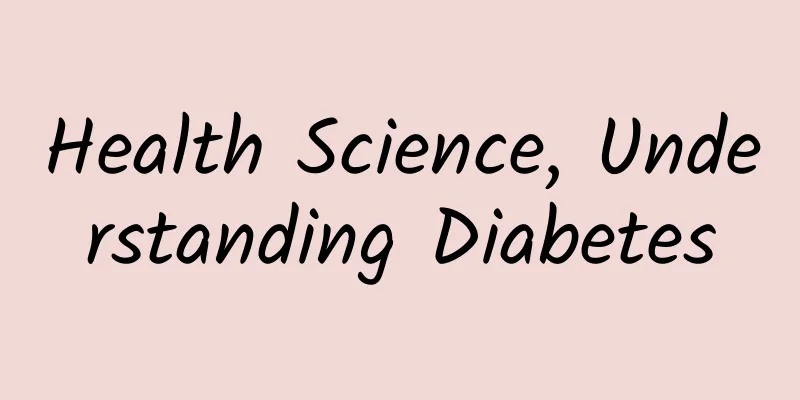Can regular infusion prevent cerebral infarction? Don't believe it, it's very dangerous!

|
Rumor: "Regular infusion can prevent cerebral infarction" It is the season of transition from autumn to winter, which is also the high-incidence season for cerebral infarction. The saying that "infusion can prevent cerebral infarction" is widely spread. Some elderly people even receive infusion every half a month to prevent cerebral infarction. Can infusion really prevent cerebral infarction? Rumor analysis: Not true. Blindly carrying out "health care" infusion will not only fail to prevent cerebral infarction, but may also bring health risks. Excessive infusion will increase the burden on blood circulation, causing increased pressure on the heart and kidneys, especially for patients with cardiovascular disease or renal insufficiency, and may cause serious complications such as heart failure and pulmonary edema. Cerebral infarction is a major killer that threatens the health of middle-aged and elderly people. Now is the season of transition from autumn to winter, which is also the high-incidence season for cerebral infarction. The saying that "infusion can prevent cerebral infarction" is widely spread. Some elderly people even receive infusion every half a month to prevent cerebral infarction. Can infusion really prevent cerebral infarction? In fact, this saying has no scientific basis at all. Instead, it may bring health risks and cause problems with the blood circulation system, cardiopulmonary function, kidneys, etc. What is cerebral infarction? Cerebral infarction, in layman's terms, means that the blood vessels in the brain are blocked, causing ischemia and hypoxia in part of the brain tissue, resulting in necrosis. It is like a water pipe that transports nutrients is blocked, and the land downstream will naturally dry up. It is a very common cardiovascular and cerebrovascular disease among middle-aged and elderly people, and is also one of the important causes of stroke. The formation of cerebral infarction is often closely related to arteriosclerotic plaques or blood clots in the blood vessels. When these plaques are formed, they are often accompanied by arteriosclerosis. The combined effect of the two will make the blood vessel lumen narrower and narrower, or even completely blocked, which will cause cerebral infarction. Copyrighted stock images, no reproduction is authorized There are many factors that affect the risk of cerebral infarction, including factors that we cannot change, such as age, gender, and family history; there are also factors that can be changed, such as lifestyle habits such as smoking, obesity, unhealthy diet and lack of exercise, as well as chronic diseases such as hypertension, hyperlipidemia and diabetes. The danger of cerebral infarction is that it can cause permanent damage to the brain and affect the patient's movement, language, cognitive ability, etc. If it is not rescued in time after the onset of the disease, the patient may be left with sequelae such as hemiplegia, aphasia, and even loss of independent living ability. Therefore, people often want to prevent its occurrence in life, such as taking it for granted to use infusion to "unblock" blood vessels. Does intravenous infusion really have a preventive effect? Infusion itself is to send exogenous fluid into the human blood circulation. These fluids must also contain solutes and cannot be pure water, otherwise the blood cells will rupture and hemolysis will occur. In addition, the daily infusion cannot be too much or too fast. Studies have found that if hypertensive patients receive more than 500 ml of saline per day, their blood pressure will fluctuate greatly, which is not conducive to blood pressure control. Copyrighted stock images, no reproduction is authorized If you blindly perform "health care" infusion, it will not only fail to prevent cerebral infarction, but may also bring health risks. Excessive infusion will increase the burden on blood circulation, causing increased pressure on the heart and kidneys, especially for patients with existing cardiovascular disease or renal insufficiency, it is more likely to cause serious complications such as heart failure and pulmonary edema. To effectively prevent cerebral infarction, the most important thing is to start with controlling basic diseases such as blood pressure and blood lipids, and maintain a healthy lifestyle, rather than relying on unnecessary infusions. Correct way to prevent cerebral infarction To truly prevent cerebral infarction, we still need to start changing the "modifiable risk factors" mentioned above. First of all, adjusting lifestyle habits is an important part of preventing cerebral infarction. A healthy diet should minimize the intake of high-salt, high-fat, and high-sugar foods, and eat more foods rich in dietary fiber, vegetables, and fruits. At the same time, maintaining regular aerobic exercise, such as 30 minutes of brisk walking every day, can not only promote blood circulation, but also help control weight and reduce the risk of vascular sclerosis. In addition, quitting smoking and limiting alcohol are also essential steps, because tobacco and alcohol are important factors that cause vascular damage and high blood pressure. Copyrighted stock images, no reproduction is authorized Secondly, it is very important to manage the underlying diseases, especially for patients with chronic diseases such as hypertension, hyperlipidemia and diabetes, who are at a higher risk of cerebral infarction. Regularly monitoring blood pressure, blood sugar and blood lipid levels, taking medicine on time under the guidance of a doctor, and keeping these indicators within the normal range can effectively reduce the chances of arteriosclerosis and thrombosis. For people with arteriosclerosis or carotid plaques, doctors may recommend the use of antiplatelet drugs, such as low-dose aspirin, to prevent the formation of blood clots. Of course, the use of these drugs should be carried out under the guidance of a doctor, and never decide on your own. In addition, regular physical examinations are another important means of preventing cerebral infarction. Especially for middle-aged and elderly people, a comprehensive physical examination once a year can detect potential risk factors early, such as carotid stenosis and arrhythmia. Once these hidden dangers are discovered in time, they can be intervened by medical means to reduce the risk of cerebral infarction. Physical examinations are not only a way to understand your own health status, but also an important way to take protective measures in advance. In general, the prevention of cerebral infarction needs to start from all aspects of life, rather than blindly relying on so-called "health care" means. Scientific management of blood pressure and blood lipids, maintaining good living habits and regular physical examinations are truly effective preventive measures. I hope everyone can pay attention to these practical suggestions and take positive actions instead of being misled by false rumors. Looking in the mirror of rumors Some rumors may mistake treatment methods for prevention methods, or even misattribute them. Infusion is originally a treatment method, but in this rumor, it becomes a treatment method for cerebral infarction. To put it another way, when patients with cerebral infarction are treated with infusion, it is the infusion drugs that work, not the infusion itself. References [1]Kuriakose D, Xiao Z. Pathophysiology and Treatment of Stroke: Present Status and Future Perspectives. Int J Mol Sci. 2020;21(20):7609. [2]Wu J, Nie J, Wang Y, et al. Relationship between saline infusion and blood pressure variability in non-critically patients with hypertension: A retrospective study. Medicine (Baltimore). 2020;99(35):e21468. [3]Intravenous fluid therapy in adults in hospital. NICE Clinical Guidelines, No. 174. https://www.nice.org.uk/guidance/cg174 Author: Jiang Yongyuan, Master of Internal Medicine, Third Military Medical University Review | Li Jingjing Professor and Chief Physician, Department of Neurology, Beijing Tiantan Hospital |
>>: “Double 11” is approaching, beware of this dangerous action after opening the express package!
Recommend
What causes hand pain in pregnant women
Pregnant women often experience various changes i...
How to accurately determine the downtime during continuous renal replacement therapy?
Acute kidney injury (AKI) is a common complicatio...
What will the future “new era of scientific skin care” look like?
When it comes to skin care, in the past we only k...
How much water is appropriate for potted red plums? When is the flowering period of red plums?
Red plum is a kind of plum blossom, which can be ...
How long does it take to get your period after a miscarriage?
Many female friends have no choice but to choose ...
Why do I have lower abdominal pain one week after miscarriage?
After a miscarriage, women need careful care from...
What does a woman's round nose mean?
There is a saying in physiognomy: A round nose me...
Does a face-lift for pregnant women have any effect on the fetus?
In modern life, women pay more and more attention...
Health care methods for 40-year-old women
After we are over 40, we will feel that we are no...
Facing this summer's flu, how to "know yourself and know the enemy" to avoid being infected
Recently, the positive rate of influenza testing ...
38 weeks of pregnancy
The 38th week of pregnancy has entered the late s...
Specifically targeting Omicron! How can the domestically produced "new" vaccine help us?
On April 26, Sinopharm Group China National Biote...
How long does it take for the lochia to be cleared after induced labor at 4 months?
Induced abortion is simply a birth surgical proce...
How to relieve primary dysmenorrhea
There are many factors that cause dysmenorrhea. S...
Are dysmenorrhea patches useful?
Many female friends come to consult the editor, a...









